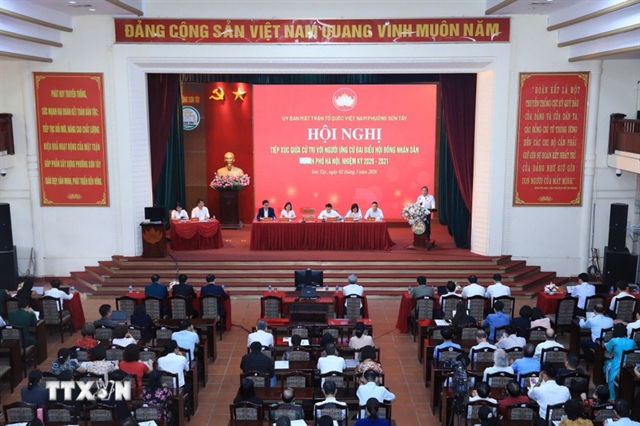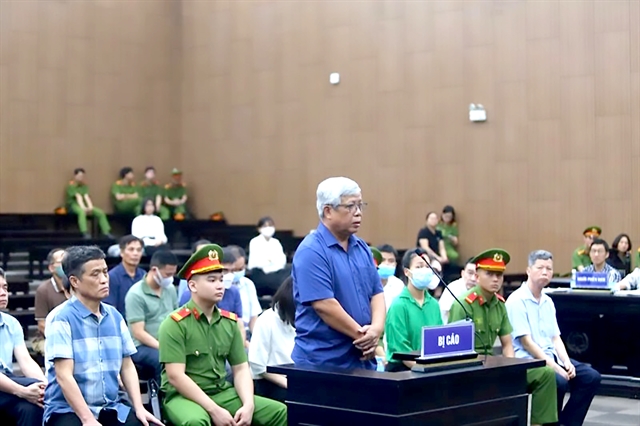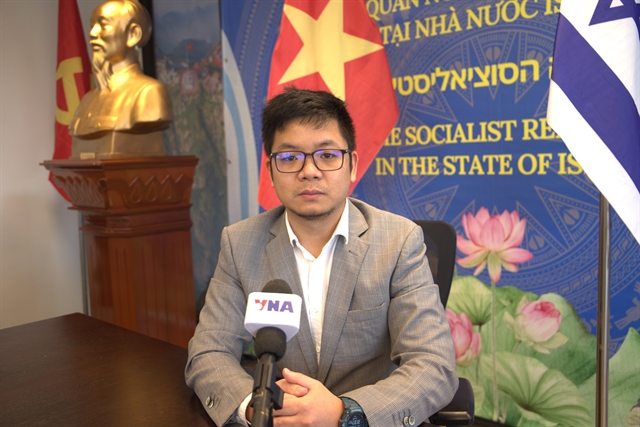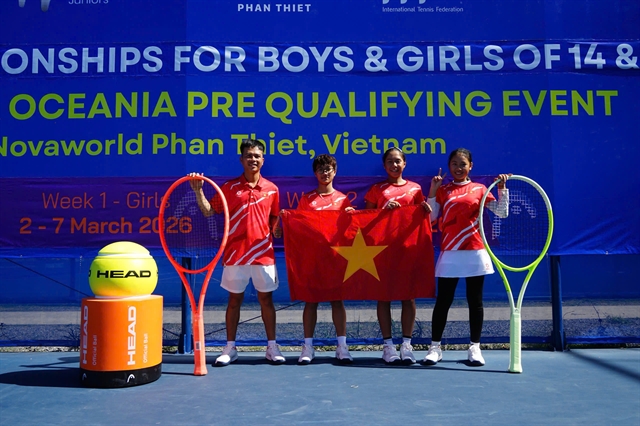 Politics & Law
Politics & Law

 |
| Former deputy minister of the Ministry of Natural Resources and Environment Nguyễn Linh Ngọc at the trial on Monday in Hà Nội. — Photo courtesy Ministry of Public Security |
HÀ NỘI — The trial of the case of Thái Dương Company and related units illegally exploiting rare earth at the Yên Phú mine in Yên Bái Province opened in Hà Nội on Monday.
Among 27 defendants on trial, seven are former leaders and employees of the Ministry of Natural Resources and Environment and the Department of Natural Resources and Environment of Yên Bái Province. They are prosecuted for the crime of "violating regulations on management and use of State assets causing loss and waste" as defined under the Penal Code.
They are Nguyễn Linh Ngọc, former deputy minister; Nguyễn Văn Thuấn, former director of the General Department of Geology and Minerals; Hoàng Văn Khoa, former director of the Department of Minerals (belonging General Department of Geology and Minerals); Lê Duy Phương, former senior specialist of the Department of Minerals; Hồ Đức Hợp, former director of the Department of Natural Resources and Environment of Yên Bái Province; Lê Công Tiến, former deputy director of the Department of Natural Resources and Environment of Yên Bái Province; Bùi Đoàn Như, former deputy director of the Sub-department of Environmental Protection of Department of Natural Resources and Environment of Yên Bái Province.
The other 20 defendants are directors, deputy directors, accountants and staffs of companies of Thái Dương, the Việt Nam Rare Earth Joint Stock Company, the Trường Sơn War Invalid Joint Stock Company, Dương Liễu Logistics Company, Hợp Thành Phát Transport Company, Atexim Company and HUYHUANG Company.
The charge is for: "violating regulations on resource exploitation, accounting causing serious consequences, and causing environmental pollution, smuggling, and receiving property obtained through criminal acts."
According to the indictment by the Supreme People’s Procuracy, this is an especially serious case related to the exploitation, business operations, export and State management of mineral resources.
Đoàn Văn Huấn, acting as the head of Thái Dương Company, organised and directed the illegal mining of rare earth and iron ore at the Yên Phú mine between 2019 and 2023.
The total value of illegally extracted minerals is over VNĐ864 billion (US$34 million), of which Huấn and his accomplices sold ores worth more than VNĐ763 billion ($30 million).
Huấn also directed the creation of two accounting systems, causing a tax loss of over VNĐ9.6 billion ($380,000) to the State.
In 2012, the Ministry of Natural Resources and Environment assigned Deputy Minister Nguyễn Linh Ngọc to oversee matters relating to geology and minerals, and to supervise the General Department of Geology and Minerals – the agency responsible for receiving and evaluating applications for mineral exploitation licence.
Previously, in 2011, the general department received a licence application for rare earth mining at Yên Phú mine from Thái Dương Company.
Ngọc then signed a report to the Prime Minister recommending the issuance of the licence, stating that “the application dossier meets all requirements.”
The Government Office then issued a document instructing relevant ministries to direct the investor to formulate a project on deep processing of rare earths, along with an environmental impact assessment report.
The PM also issued a directive to strengthen State management over the exploration, mining, processing, use and export of mineral resources.
Following this directive, Thái Dương Company prepared an investment project for a rare earth deep processing complex, including a hydrometallurgical plant in Yên Bái and a separation-processing plant in Đình Vũ of Hải Phòng City.
Subsequently, on December 14, 2012, the Government Office sent a document to the Ministries of Natural Resources and Environment, and Industry and Trade, and the People’s Committee of Yên Bái Province to convey the Prime Minister’s opinion: “In principle, approval is granted for the exploitation and processing of rare earth ores at Yên Phú, provided that the ores are deeply processed, no raw ores are exported, and all legal obligations under the Mineral Law are fulfilled; the exploitation rights must not be transferred to foreign organisations or individuals.”
Upon receiving this document, Deputy Minister Nguyễn Linh Ngọc instructed the General Department to finalise the licensing procedures for Thái Dương Company.
At that time, the project had changed in both scale and nature. It was no longer just a mining and ore-processing project, as initially proposed in 2011, but included three inseparable components of mining and ore-processing project, the hydrometallurgical plant in Yên Bái and the separation-processing plant in Hải Phòng.
However, Thái Dương Company’s application dossier only included an investment certificate for the mining and ore-processing project, issued by the Yên Bái Province People’s Committee in 2011 (which expired in 2012) and had not been renewed or reissued. There were no investment certificates for the hydrometallurgical plant in Yên Bái or the separation-processing plant in Hải Phòng.
Furthermore, Thái Dương Company’s equity capital did not meet the legal requirement of 30 per cent of the project’s total investment (having only VNĐ200 billion ($7.9 million) compared to a total investment of VNĐ1.953 trillion ($77 million), which violated the Mineral Law.
Nevertheless, officials at the General Department still used the 2011 appraisal results to submit the application.
Deputy Minister Nguyễn Linh Ngọc, despite reviewing and knowing that Thái Dương Company did not meet the necessary conditions, still signed off on the licence in 2013.
The procuracy concluded that the actions of the leaders and officials at the Ministry of Natural Resources and Environment contributed to enabling Huấn to illegally exploit and sell rare earth and iron ore worth a total of VNĐ736 billion ($29 million).
The trial is expected to last ten days. — VNS




